We are completely responsible for our own lives
No one is coming to save us - why I wrote my book, in 10 questions
You have 7 days left to purchase my limited edition debut special Pathways, until 27th May. Then it’s gone 🎈
JP Watson, founder of independent publisher, The Pound Project, asked me 10 questions about what Pathways is about and why I wrote it.
1) What is your hope for the books?
That people read and resonate with them.
I have found the most impactful books in my life have been the ones that have left me feeling empowered and validated the way I think, when I had previously felt cautious about sharing my viewpoints beyond the safety of close friends and family.
They are books that gave me the confidence to have conviction in what I believe. If Pathways has even a hint of that effect on anyone, that would be quite amazing.
2) Why did you feel you needed to leave the UK? Was there anything specific?
I'm not running away from London or the UK. I love London and my life and have worked very hard to make it what it is.
We tried to pursue our dreams of land-based living in the UK. But unless you are loaded, inherit land or are prepared to live somewhere isolated and cold, it's almost impossible to do this in this country.
Also, I suspect I am part-reptilian in that when the sun is out I'm like a lizard basking on a rock. I need sun and Portugal has plenty of that.
3) In the books you are (rightly) critical of how we are treated by those in power - why? Has this been on your mind for a while?
Yes.
A few years ago I read an article written by Andy Cato from Groove Armada, who sold the rights to his songs to become a regenerative farmer and co-found Wild Farmed.
In it, he said that 15 years prior he had read an article on the environmental consequences of food production which ended by saying,
'If you don't like the system, don't depend on it.'
I read this line and it hit a nerve. I thought, ‘This is exactly how I feel’.
So many of the systems governed by those in power simply do not work. Not only are they badly broken, but they are making our lives worse.
The food system is one example of these. As a presenter on BBC Radio 4's The Food Programme, I am lucky enough to be privy to a fair bit of what is going on in the world of food and farming.
My colleague and friend, Sheila Dillon, recently made an episode of The Food Programme called ‘Broken Policies’.
In it, she cites that the Government has been trying to do something about obesity and food-related ill health for about three decades, starting in the early 90s when the first obesity reduction targets were published.
Since then, the Government has published almost 700 individual policies to try and tackle obesity and food-related ill health and yet, the rates of those have actually got worse in that time, not better.
Isn't that wild?
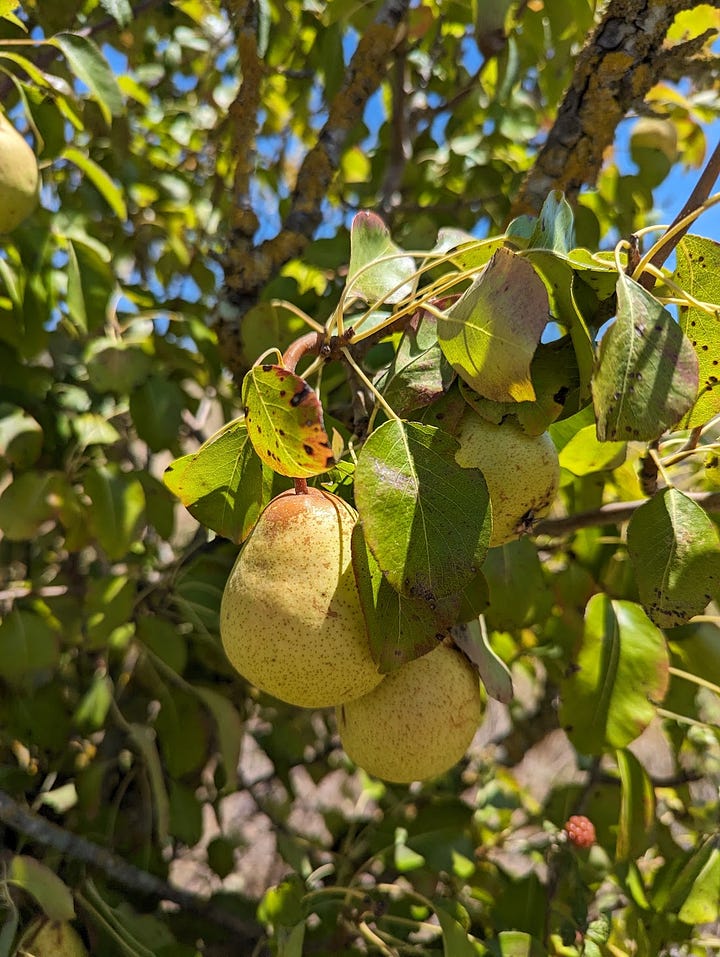

When people are infuriated by what those in power are doing or not doing, some might become activists, lobbyists or do amazing work to try and make an impact on the political playing field.
I admire these acts deeply, but I’m just not that way inclined.
Instead, I intend to create my own system for food, wellbeing and healthcare (as opposed to sick care, which I feel is a more accurate description of Western medicine), becoming part of a small local community that helps and relies more on each other and less on 'The Man'.
We are completely responsible for your own lives; no one is coming to save us. Once peace is made with this, it can feel extremely liberating and empowering.
4) There is also anxiety about our treatment of the natural world - where have we gone wrong?
I think the main issue is that we - that is, the human species - very bizarrely seem to believe that we are separate to Nature, as opposed to a part of it.
E.F. Schumacher says it well in Small Is Beautiful: A Study of Economics as if People Mattered (one of the nine books in the reading list included in Pathways)
'Modern man does not experience himself as a part of nature but as an outside force destined to dominate and conquer it. He even talks of a battle with nature, forgetting that, if he won the battle, he would find himself on the losing side.'
And because we are so disconnected from where we come from, and what is part of us, we feel nothing about ripping it to shreds.
Just another day, just another 200,000 acres of rainforest being destroyed. The very rainforests that provide us with the oxygen we need to breathe in order to live.
It's kind of like sawing off your own leg and not batting an eyelid.
5) What can we do about it?
Don't wait for, expect or rely on Governments or those in power to make the right decisions for people or planet. Instead, empower yourself to take your own action to better your little corner of the world, wherever that is.
What you do doesn't need to be huge to make a real and significant difference in your own life and the lives of others, when you localise your efforts.
If everyone tended to their immediate surroundings and community, rather than expelling their finite time and energy trying to shift unmovable boulders high up the chain, imagine what on-the-ground transformation could occur and how quickly this could happen.
6) What is purposeful living?
For me it really comes down to being able to answer one question: is what I am doing today moving me towards the life I want?
It’s about aligning your actions, choices and values with what really matters to you; it’s not just about what you are doing but why you are doing it.
Figuring out what really matters to you, and your own path to whatever that is, is no mean feat. This is where I hope Book 2: Pathways – To Purposeful Living can especially help.
In it I share the thoughts I’ve had and questions I’ve asked myself over the years that helped me define what purposeful and intentional living looks like for me.


7) What's your advice to anyone who can't up sticks and move to Portugal?
Pursuing a more empowered, self-reliant and land-based way of living does not need to involve tending to a big old field in a different country. Deep senses of this can be achieved in any kind of outside space, for example a garden or even a window box of salads.
I would also really encourage having a go at foraging, whether that’s for blackberries, nettles or lime blossom flowers for tea.
Gratefully receiving Nature’s gifts directly from the provider, without any interfering middle men (i.e. humans), is a radical act of autonomy and one of life’s most fulfilling pleasures.
8) What role do writers/artists/illustrators have to enact change?
I am a strong believer in the power of people, grassroots change and a do-it-yourself attitude.
Creatives play a big role in this; the stories they tell and the ideas they express in their work can have a powerful impact, inspiring and empowering others to take action and become the change they actually want to see.
9) Why did you decide you wanted to live off the land?
Our globalised food system relies almost exclusively on fossil fuels. These fuels are used to synthesise fertilisers and pesticides – inputs without which large-scale industrial farming cannot exist.
They also power all the machinery as well as the vast network of trucks, planes and infrastructure that transport food across continents, from farms, to warehouses, to supermarket shelves on the other side of the world.
Not only that, but this global food system is also fragile and unstable – throw a crisis such as the pandemic, war or Brexit in the works and you quickly face empty supermarket shelves and increased food insecurity.
It’s a system that is also killing us, contaminating ecosystems with chemical runoff, driving species to extinction and producing food stripped of the essential nutrients and minerals that make it nourishing in the first place.
So, understanding the work that goes into the food we consume, reducing our reliance on these systems, producing nutritious and un-meddled food that regenerates soil and biodiversity (rather than stripping it away) and upskilling our lives, are big drivers for wanting to live in this way.
10) Any other thoughts/words?
The day I eat my first egg from my own chickens, fed on fodder that I have organically grown without the use of any external inputs, is one of the days I am most looking forward to on this journey.
I already know it will be the most amazing egg I have ever eaten.
An abridged version of this interview can be found on The Pound Project.
16th February 2025, 16:30 - The Land
To celebrate Pathways being on sale from 6th - 27th May, anything I publish on A Day Well Spent will be free to read and the comments open to everyone, for the duration of this period ❤️
As always, I would love to hear your thoughts on this piece!
You have 7 days left to purchase Pathways, until 27th May. Then it’s gone 🎈
Some conversations and words…
…from the past two weeks about Pathways you might enjoy:
‘I don’t have a book in me’ — how I wrote my first book
A chat with gilly smith for her award-winning podcast Cooking the Books (listener numbers were up 246% for this!!)
A conversation with Rosie Birkett about why I’m leaving the only life I’ve known


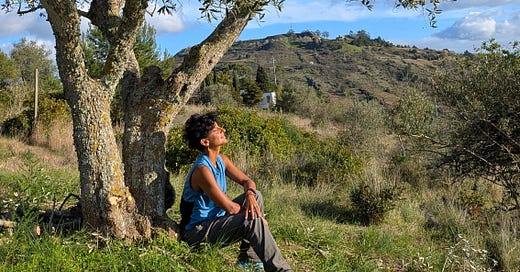




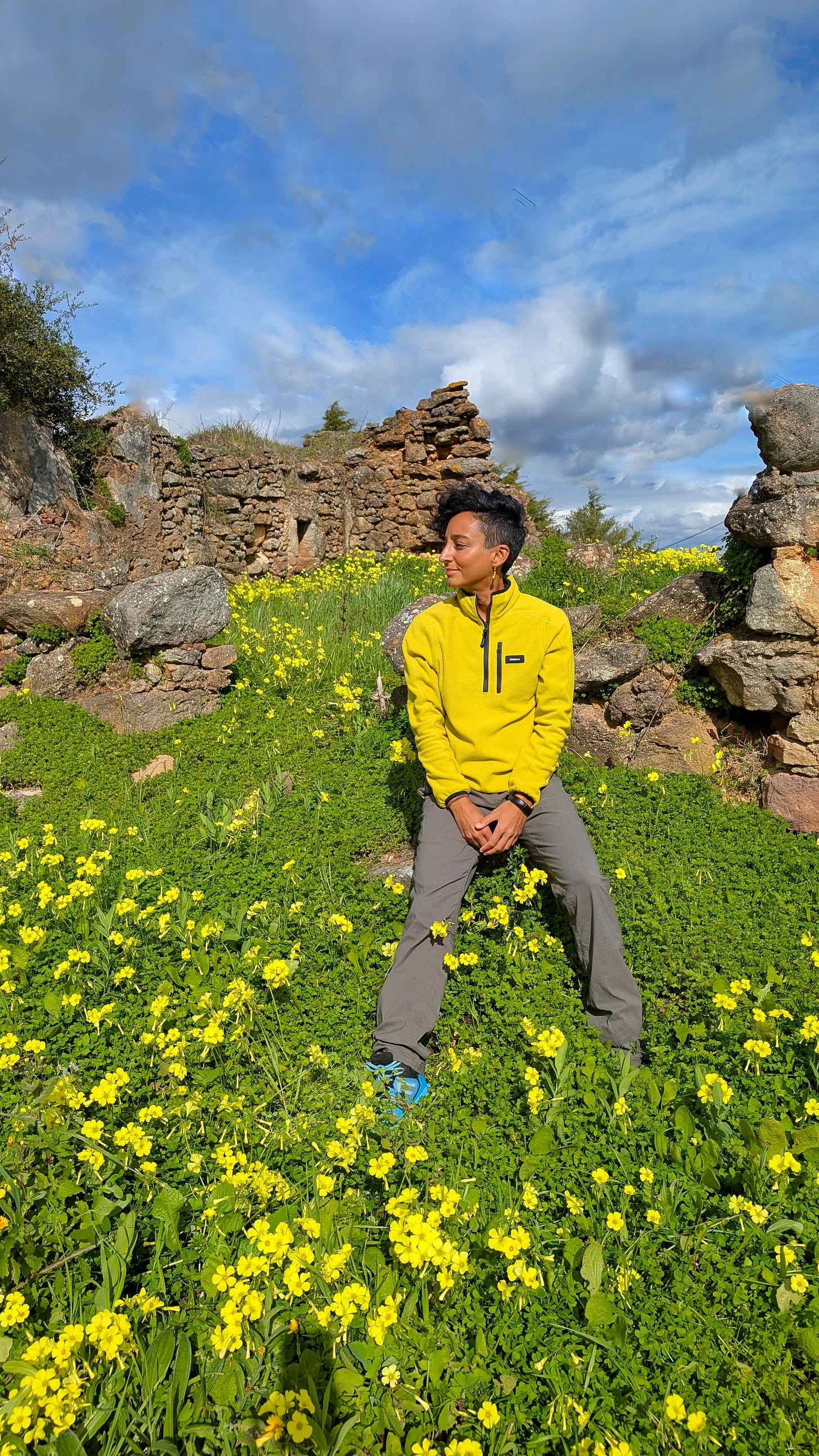

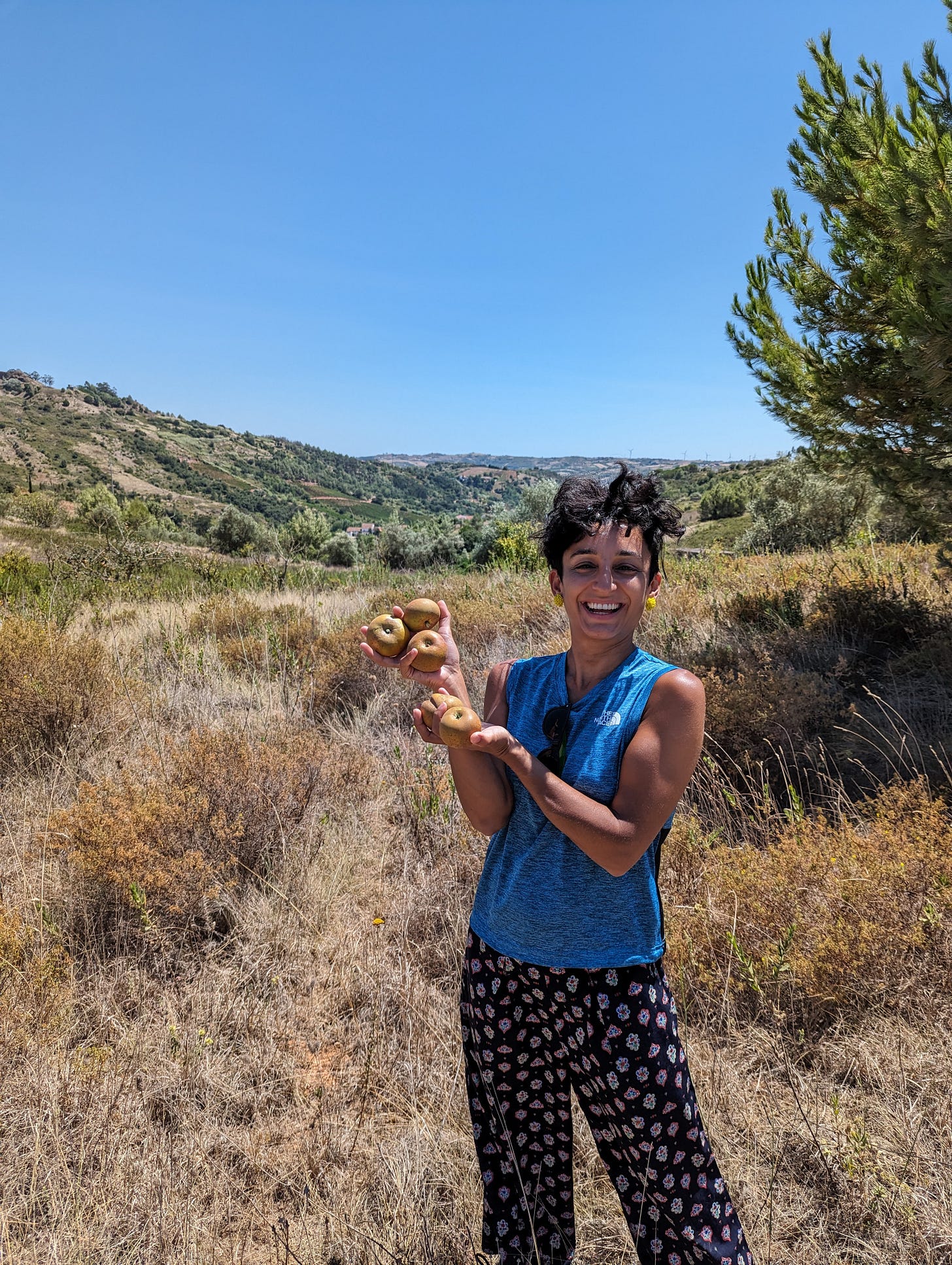
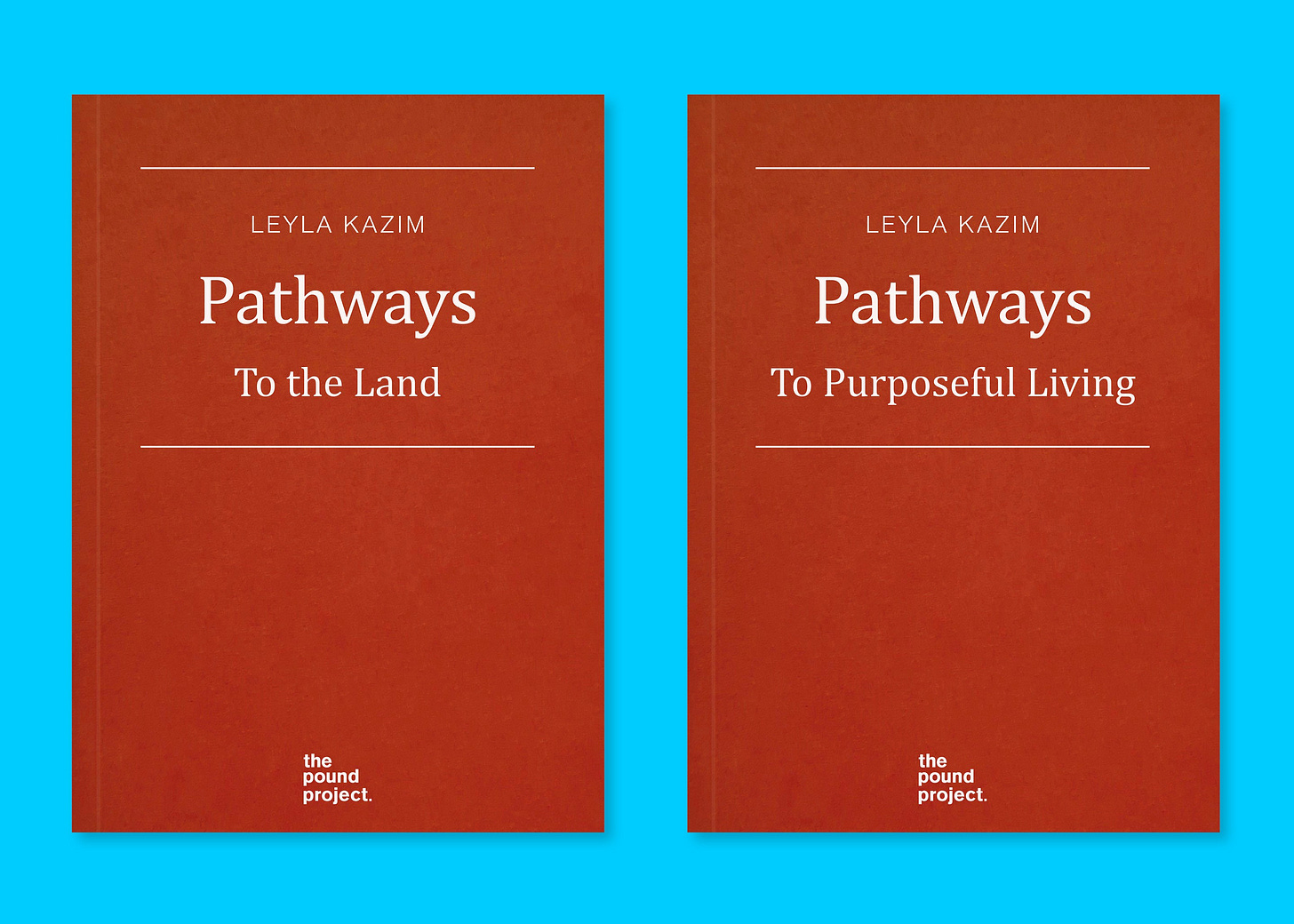
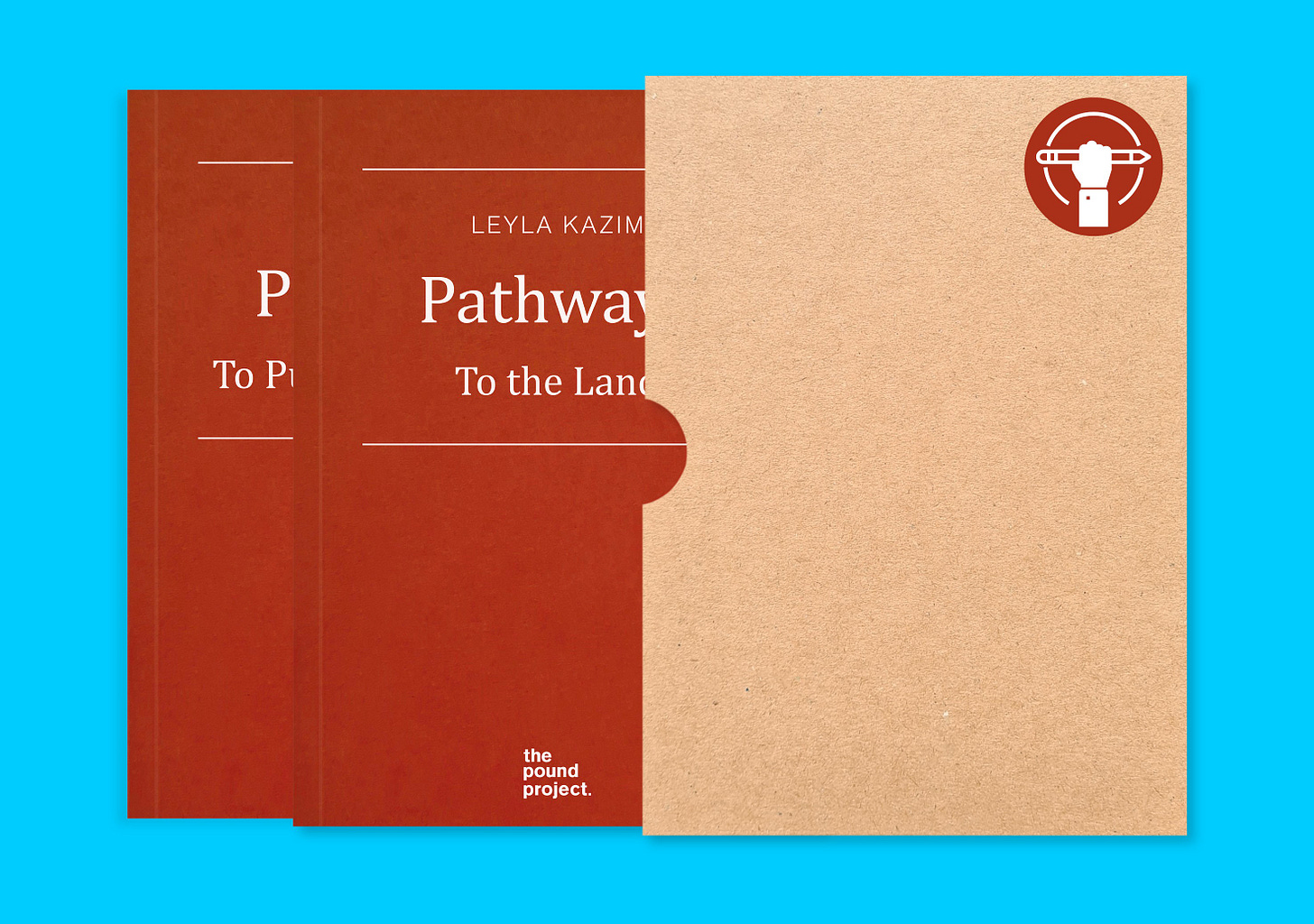
I literally read the whole article going ‘Yes. Yes. Yes’ in my head. I’m going to write ‘what thing can I do today to move me closer to the life I want’ on the top of my journal. Thanks dear Leyla! I can’t wait to read the books!
Right now I'm tired because we drove the trip from Italy to Germany yesterday, so my thoughts are fuzzy. But I need to tell you, and I suspect you know this, your ethos stirs that part of me that knows what's right and what's wrong, you make me want to write about it, because I've been living it and am going to live it more.
We've just bought property on Italy with structures from the 1500s which we will restore, enough walled gardening space for many vegetables and a guest apartment for friends ( hint hint). We're selling up here in Germany to spend the rest of this lifetime living simply and well, continuing this journey towards natural living we started in 2003.
Your books are on the way and I can't wait to spend time with you through your words.
And I can't wait to start writing about it as well.
Life is grand if we work for what we know to be right.